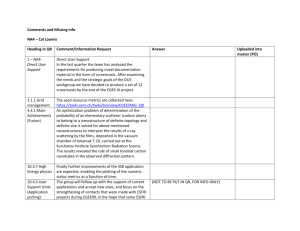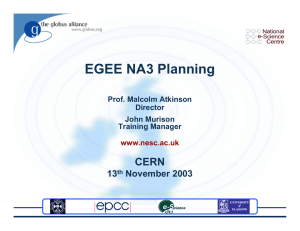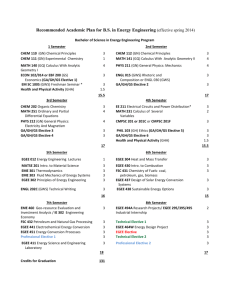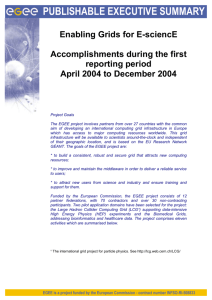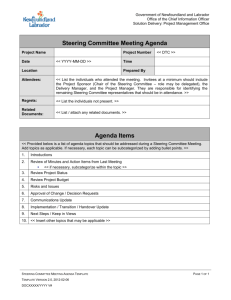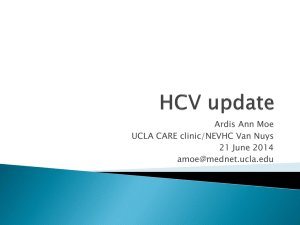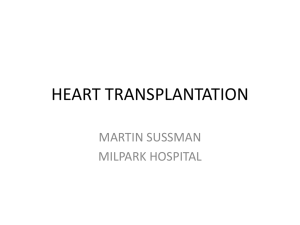Representation of the LHC experiments within the - Indico
advertisement
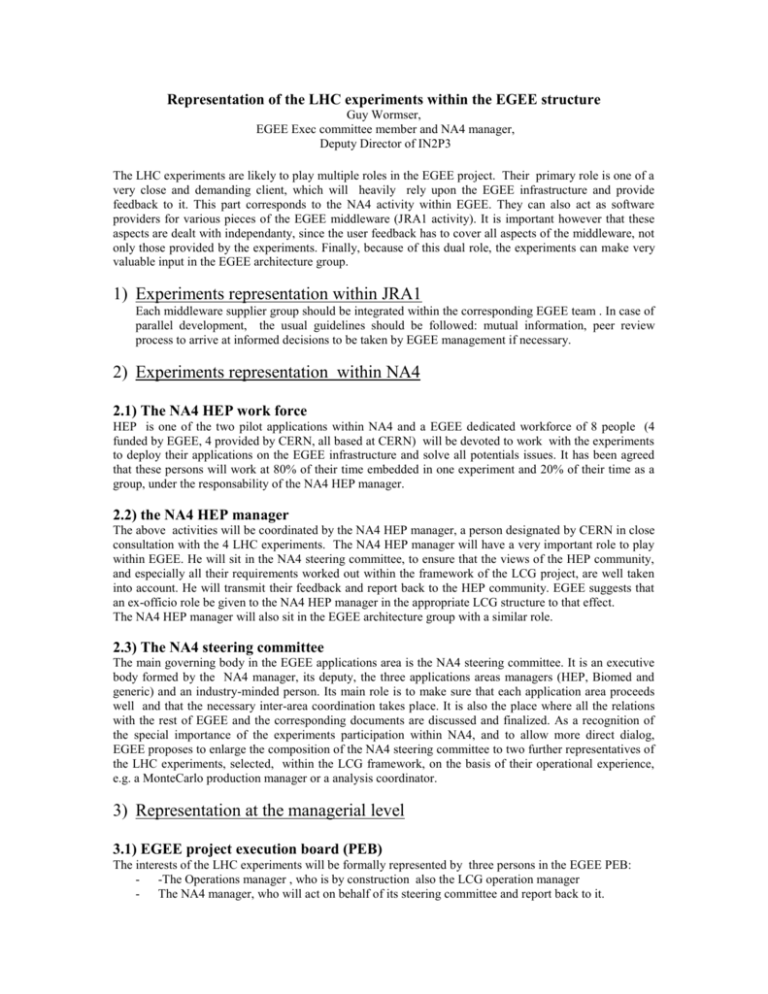
Representation of the LHC experiments within the EGEE structure Guy Wormser, EGEE Exec committee member and NA4 manager, Deputy Director of IN2P3 The LHC experiments are likely to play multiple roles in the EGEE project. Their primary role is one of a very close and demanding client, which will heavily rely upon the EGEE infrastructure and provide feedback to it. This part corresponds to the NA4 activity within EGEE. They can also act as software providers for various pieces of the EGEE middleware (JRA1 activity). It is important however that these aspects are dealt with independanty, since the user feedback has to cover all aspects of the middleware, not only those provided by the experiments. Finally, because of this dual role, the experiments can make very valuable input in the EGEE architecture group. 1) Experiments representation within JRA1 Each middleware supplier group should be integrated within the corresponding EGEE team . In case of parallel development, the usual guidelines should be followed: mutual information, peer review process to arrive at informed decisions to be taken by EGEE management if necessary. 2) Experiments representation within NA4 2.1) The NA4 HEP work force HEP is one of the two pilot applications within NA4 and a EGEE dedicated workforce of 8 people (4 funded by EGEE, 4 provided by CERN, all based at CERN) will be devoted to work with the experiments to deploy their applications on the EGEE infrastructure and solve all potentials issues. It has been agreed that these persons will work at 80% of their time embedded in one experiment and 20% of their time as a group, under the responsability of the NA4 HEP manager. 2.2) the NA4 HEP manager The above activities will be coordinated by the NA4 HEP manager, a person designated by CERN in close consultation with the 4 LHC experiments. The NA4 HEP manager will have a very important role to play within EGEE. He will sit in the NA4 steering committee, to ensure that the views of the HEP community, and especially all their requirements worked out within the framework of the LCG project, are well taken into account. He will transmit their feedback and report back to the HEP community. EGEE suggests that an ex-officio role be given to the NA4 HEP manager in the appropriate LCG structure to that effect. The NA4 HEP manager will also sit in the EGEE architecture group with a similar role. 2.3) The NA4 steering committee The main governing body in the EGEE applications area is the NA4 steering committee. It is an executive body formed by the NA4 manager, its deputy, the three applications areas managers (HEP, Biomed and generic) and an industry-minded person. Its main role is to make sure that each application area proceeds well and that the necessary inter-area coordination takes place. It is also the place where all the relations with the rest of EGEE and the corresponding documents are discussed and finalized. As a recognition of the special importance of the experiments participation within NA4, and to allow more direct dialog, EGEE proposes to enlarge the composition of the NA4 steering committee to two further representatives of the LHC experiments, selected, within the LCG framework, on the basis of their operational experience, e.g. a MonteCarlo production manager or a analysis coordinator. 3) Representation at the managerial level 3.1) EGEE project execution board (PEB) The interests of the LHC experiments will be formally represented by three persons in the EGEE PEB: - -The Operations manager , who is by construction also the LCG operation manager - The NA4 manager, who will act on behalf of its steering committee and report back to it. - An ex-officio LCG presentation, as proposed in the LCG-EGEE cooperation agreement 3.2) Regular meetings between EGEE management and the LHC experiments In order to facilitate dialog and ensure a smooth process, EGEE proposes that regular (ie quarterly ) meetings be organized between the 4 LHC experiments, LCG and EGEE. EGEE will be represented at least by the three persons mentioned above together with the HEP members of the NA4 steering committee. The role of these informal meetings is to ensure that all potential problems are properly addressed .
